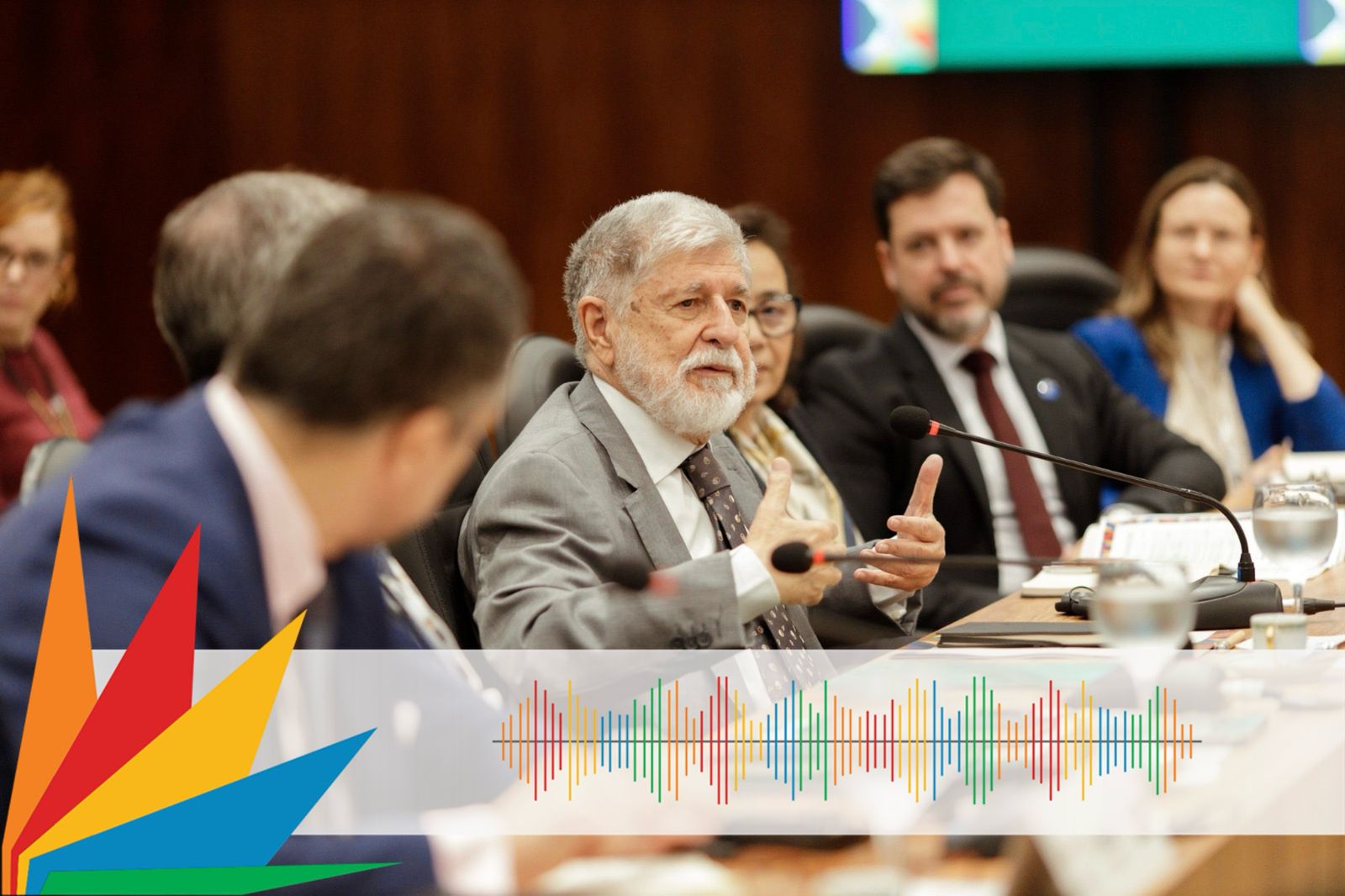BRICS Brasil Bulletin #01 - BRICS is not "anti-West" but strives for geopolitical balance, says Brazilian ambassador
One of the founders of BRICS and current special advisor to the Presidency of Brasil for International Affairs, Celso Amorim reiterates the role of the group as a multilateral alternative. Amorim took part in the 10th BRICS Policy Planning Dialogue held in Brasília this week. Listen to the report and learn more.
Report by Leandro Molina | leandro.molina@presidencia.gov.br | Voiceover: Laura Carrasco Frederico
Reporter: The tenth edition of the BRICS Policy Planning Dialogue took place over two days of intense discussions at the Itamaraty Palace in Brasília. The priority discussions included best practices in foreign policy planning, and an analysis of the most recent activities of the Policy Planning Offices of each country in the group.
One of the participants was Ambassador Celso Amorim, current special advisor to the Presidency of Brasil for International Affairs and one of the founders of BRICS. Amorim observed that the BRICS Foreign Policy Planning Dialogue — result of a proposal made by the Brazilian presidency of the group in 2014 — is a milestone in informal discussions between the ministries of Foreign Affairs of member countries. Amorim mentioned that the first event of this nature was held in 2015, in Russia, and that, since then, the Dialogue has been held annually, focusing on the needs and priorities of the Global South.
When revisiting the origins of the group, Ambassador Celso Amorim reiterated the role of BRICS, denying claims that it would be an "anti-West" alliance.
Celso Amorim: We are not 'anti'. We are pro-development, pro-multilateralism and pro-social justice.
Reporter: In January 2025, Indonesia became a full member of BRICS. This was the first expansion of the group under the Brazilian presidency, which began on January 1. The Brazilian Ministry of Foreign Affairs (Ministério das Relações Exteriores/MRE) welcomed Indonesia, highlighting the country as "the largest economy in Southeast Asia" and its alignment with BRICS objectives.
Indonesian Ambassador Spika Tutuhatunewa, representing the Foreign Policy Strategy Agency of the Indonesian Ministry of Foreign Affairs, expressed enthusiasm for the country's recent accession to BRICS. She spoke of the importance of multilateral conversations during her participation in the BRICS Policy Planning Dialogue in Brasilia.
Spika Tutuhatunewa: We are very excited to become a member of BRICS, also very excited to participate in this dialogue. We learn firsthand about what is the positions of each country, each member of the BRICS and the delegation, and also about their take on the development in their own region, but also comments on the other regions, which is for us this is an extremely important and also we are very happy being part of the discussion today.
Reporter: The meeting took place at a time when BRICS is expanding from five to 11 members, and when the group is increasingly taking a leading role in debates on the multipolar order, trade in local currencies, and reform of institutions such as the UN and the IMF. Brasil, which chairs BRICS, has strengthened its role as a bridge between the Global South and emerging economies, aligning itself with issues such as international peace and sustainable development.
English version: Mary Aune
Proofreading by Enrique Villamil
